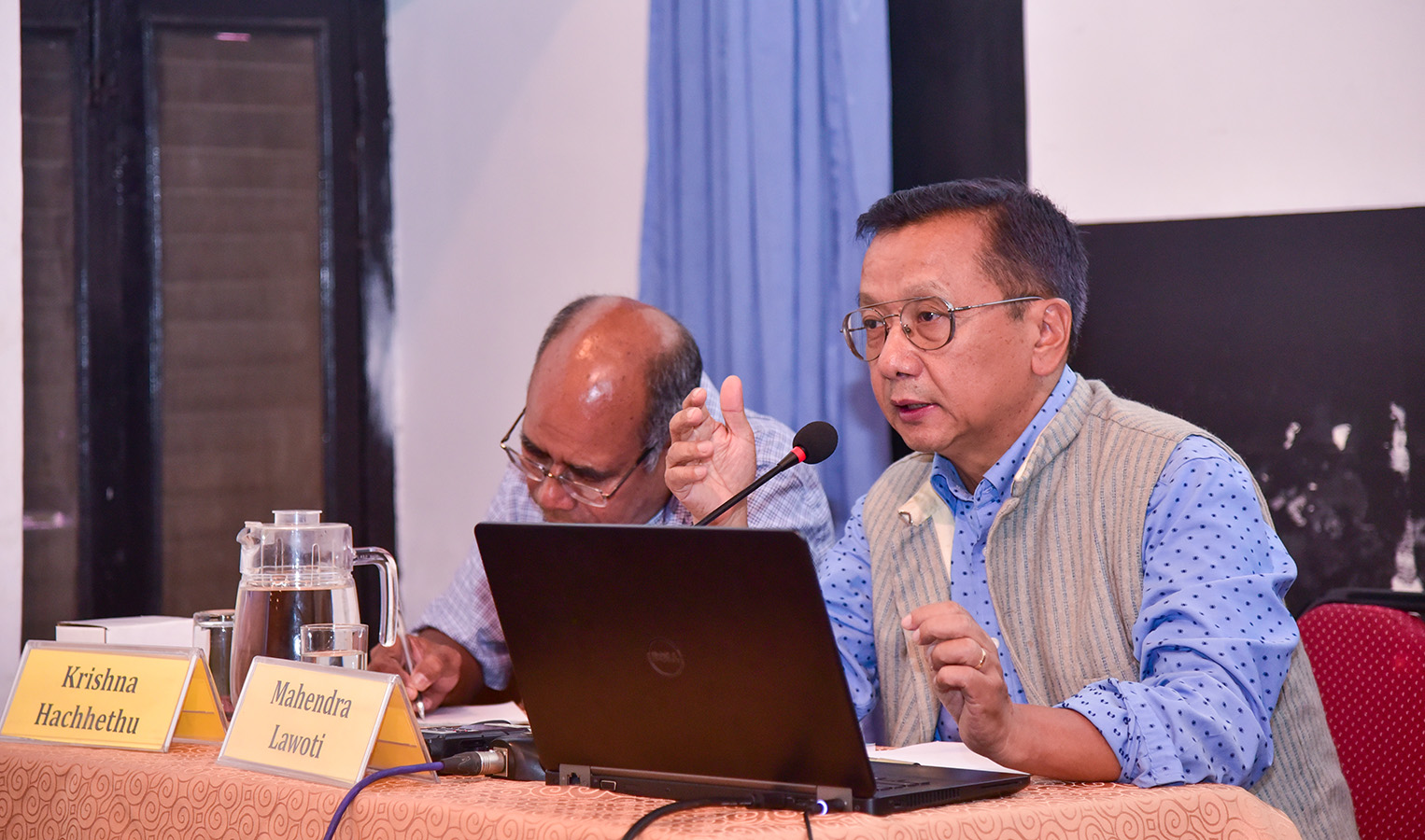Lecture Series
Two-Party to Multi-Party System in Nepal: Causes and Consequences of Consolidation

Mahendra Lawoti
on
Two-Party to Multi-Party System in Nepal: Causes and Consequences of Consolidation
This lecture will first demonstrate the establishment of multiparty system in recent decades by calculating ‘the effective number of political parties’ (and not the number of political parties contesting elections or winning seats)—political parties that have influence in governance and policy making. I analyse political parties’ strength in the central/federal parliament since 1959 (1959, 1991, 1994, 1999, 2008, 2012, 2017 and 2022) to show that the effective number of parties was fewer than three in the first four elections while it has been more than four since.
Based on relevant literature, the lecture will probe the role of social diversity and electoral methods in the emergence of new political parties, erosion of larger and older parties, and subsequent consolidation of a multi-party system in later years. The lecture will trace the rise of ‘identity’ political parties to examine the impact of socio-cultural diversity in the rise and expansion of identity parties in later elections and vice versa. I will demonstrate the impact of electoral methods by comparing party systems before and after the introduction of the partial proportional electoral (PR) method in 2008 as well as compare the party systems by looking at the effect of both FPTP and PR methods employed in the 2008, 2012, 2017 and 2022 elections. The comparison between 2008 and 2012 versus 2017 and 2022 elections when the PR elected nearly 60 and 40 percent of seats, respectively, will help to further confirm (or not) how the PR method (or even the role of socio-cultural diversity) fostered a multi-party system as opposed to a two-party one.
A multi-party system theoretically makes it possible for more unstable governments but the lecture will show that government instability occurred under two-party systems as well in Nepal, even though it was less frequent, while under the West European/German model of a reformed parliamentary system (2017 onwards) governments were more stable compared to the Westminster parliamentary system of earlier years. Further, I will argue that the substantive (compared to tokenistic) representation in parliament may have deepened democracy by ensuring the voices of all sections of society and also reduced non-systemic (insurgency, violent activities, separatist movements) activities in the country—at least for the time being.
* * *
To listen or download lecture in audio format
Mahendra Lawoti is Professor of Political Science at Western Michigan University. His teaching and research interests include international development, democratisation, ethnic and nationalist politics, political exclusion/inclusion, and political institutions (federalism, constitutionalism). He has authored, co-authored, edited and co-edited 10 books and published numerous journal articles, book chapters and opinion pieces. He is currently working on books on democracy and diversity in South Asia; federalism in Nepal; and democratisation and mono-ethnic hegemony in Nepal. He served two terms as the president of the Association for Nepal and Himalayan Studies (2006-2010) and two terms as Associate Fellow of Asia Society (2006-2012). He actively supports the social justice movements of marginalised groups and communities. He has conducted fieldwork in Nepal, India, Pakistan, Sri Lanka and Bangladesh, delivered lectures/papers in various countries in South Asia, East Asia, Europe, Australia, the Middle East, and North America, and spoken to the media from the world over.

